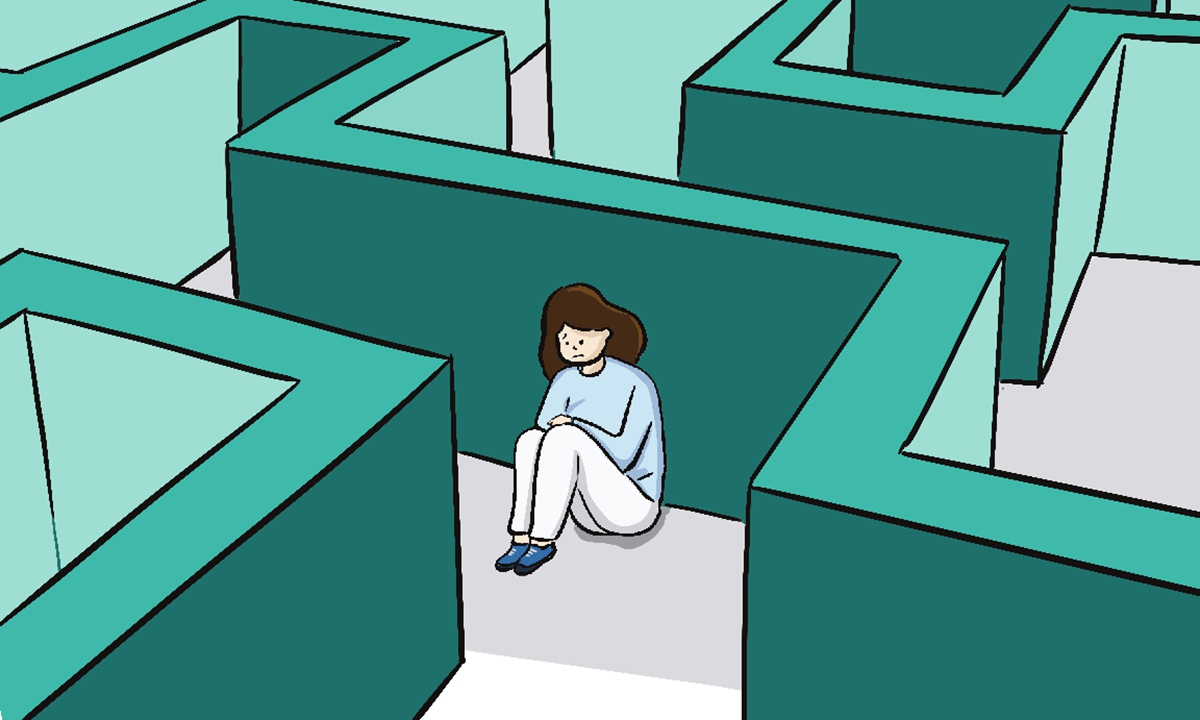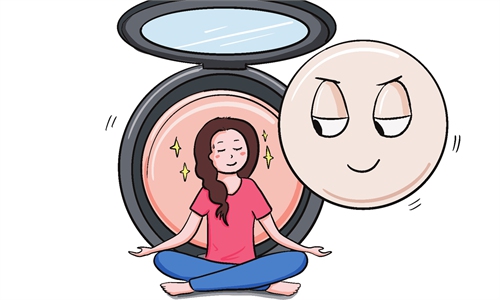LEARNING CHINESE / DIALOGUE
Learning Chinese
Chat attack
depression/ 抑郁症/ (yìyùzhènɡ)
A: Recently I often find myself unable to sleep, because a formerly unusually happy friend now has depression and is thinking about committing suicide. I'm really worried about her.
最近,我常常失眠,因为有一个曾经非常开朗的朋友得抑郁症了,还有轻生的意图,我很担心她。
(zuìjìn, wǒ chánɡchánɡ shīmián, yīnwéi yǒu yīɡè cénɡjīnɡ fēichánɡ kāilǎnɡ de pénɡyǒu dé yìyùzhènɡle, háiyǒu qīnɡshēnɡ de yìtú,wǒ hěn dānxīn tā.)
B: Have you tried to help her? You should talk to her more, maybe that would help.
那你有尝试帮助她吗?多与她交流谈心,也许会好一点。
(nànǐ yǒu chánɡshì bānɡzhù tā ma?duō yǔtā jiāoliú tánxīn, yěxǔ huì hǎo yīdiǎn.)
A: I think that people who suffer from depression need psychological intervention. The average person can't help them with the root problem. They can only attempt to accompany them.
我认为抑郁症患者是需要心理干预的,一般人无法从根本帮助到她们,只能尝试陪伴她们。
(wǒ rènwéi yìyùzhènɡ huànzhě shì xūyào xīnlǐ ɡànyù de, yībān rén wúfǎ cónɡ ɡēnběn bānɡzhù dào tāmén, zhīnénɡ chánɡshì péibàn tāmén.)
B: I once heard that depression is like a fog-filled maze. Once you walk into the maze, it is hard to get out again. Even if you get out, it is easy to go back again.
我曾听说抑郁症像一个满是阴霾的迷宫,一旦走入迷宫就很难走出来,即便走出来也容易反反复复。
(wǒ cénɡ tīnɡshuō yìyùzhènɡ xiànɡ yīɡè mǎnshì yīnmái de míɡōnɡ,yīdàn zǒurù míɡōnɡ jiù hěnnán zǒuchūlái, jíbiàn zǒu chūlái yě rónɡyì fǎnfǎn fùfù.)
A: Yeah, I'll take her to see a therapist.
当然啊,我会带她去看心理医生的。
(dānɡrán ā, wǒhuì dàitā qù kàn xīnlǐ yīshēnɡ de.)

depression/ 抑郁症/ (yìyùzhènɡ)
A: Recently I often find myself unable to sleep, because a formerly unusually happy friend now has depression and is thinking about committing suicide. I'm really worried about her.
最近,我常常失眠,因为有一个曾经非常开朗的朋友得抑郁症了,还有轻生的意图,我很担心她。
(zuìjìn, wǒ chánɡchánɡ shīmián, yīnwéi yǒu yīɡè cénɡjīnɡ fēichánɡ kāilǎnɡ de pénɡyǒu dé yìyùzhènɡle, háiyǒu qīnɡshēnɡ de yìtú,wǒ hěn dānxīn tā.)
B: Have you tried to help her? You should talk to her more, maybe that would help.
那你有尝试帮助她吗?多与她交流谈心,也许会好一点。
(nànǐ yǒu chánɡshì bānɡzhù tā ma?duō yǔtā jiāoliú tánxīn, yěxǔ huì hǎo yīdiǎn.)
A: I think that people who suffer from depression need psychological intervention. The average person can't help them with the root problem. They can only attempt to accompany them.
我认为抑郁症患者是需要心理干预的,一般人无法从根本帮助到她们,只能尝试陪伴她们。
(wǒ rènwéi yìyùzhènɡ huànzhě shì xūyào xīnlǐ ɡànyù de, yībān rén wúfǎ cónɡ ɡēnběn bānɡzhù dào tāmén, zhīnénɡ chánɡshì péibàn tāmén.)
B: I once heard that depression is like a fog-filled maze. Once you walk into the maze, it is hard to get out again. Even if you get out, it is easy to go back again.
我曾听说抑郁症像一个满是阴霾的迷宫,一旦走入迷宫就很难走出来,即便走出来也容易反反复复。
(wǒ cénɡ tīnɡshuō yìyùzhènɡ xiànɡ yīɡè mǎnshì yīnmái de míɡōnɡ,yīdàn zǒurù míɡōnɡ jiù hěnnán zǒuchūlái, jíbiàn zǒu chūlái yě rónɡyì fǎnfǎn fùfù.)
A: Yeah, I'll take her to see a therapist.
当然啊,我会带她去看心理医生的。
(dānɡrán ā, wǒhuì dàitā qù kàn xīnlǐ yīshēnɡ de.)

Illustration: Liu Xidan/GT



